In the dynamic fields of science, research, and diagnostics, the accuracy and durability of laboratory apparatus are vital for delivering reliable and reproducible results. OxyTech has earned its position as one of the most trusted lab apparatus suppliers in Saudi Arabia by consistently providing premium scientific equipment designed to meet the highest standards of performance and quality.
As a top-rated lab apparatus manufacturer in Saudi Arabia, OxyTech offers an extensive portfolio of laboratory solutions including:
Precision glassware, plasticware, and measuring instruments
Advanced equipment such as centrifuges, incubators, and safety cabinets
Customized lab solutions tailored to specific research and industrial needs
Every product is crafted to comply with international quality and safety standards, ensuring utmost reliability in critical testing and research environments.
What truly differentiates OxyTech from other suppliers is not just the superior quality of its products but its unwavering commitment to customer service and technical support. OxyTech’s expert team collaborates closely with clients to understand their unique laboratory requirements and deliver tailored solutions that enhance operational efficiency and data accuracy.
OxyTech combines a robust local presence across Riyadh, Jeddah, Dammam, and other major cities with global best practices in manufacturing. This allows the company to provide:
Timely delivery and competitive pricing
Continued innovation in lab apparatus design and performance
Fast, reliable customer and technical support
Whether establishing new laboratory facilities or upgrading existing setups, OxyTech serves as the reliable partner for lab apparatus supply throughout Saudi Arabia.
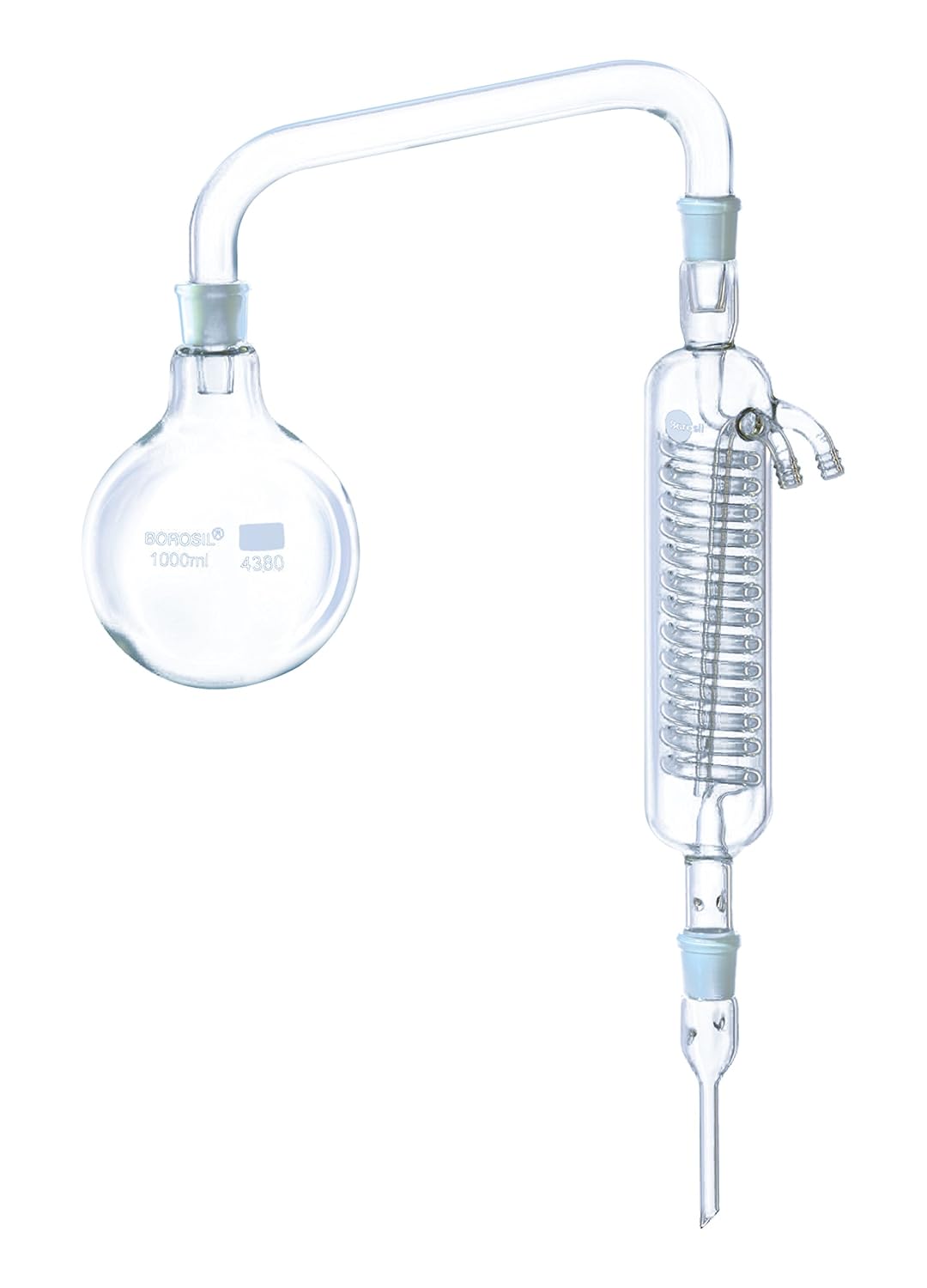
A complete assembly for distilling spirits or solvents, typically including flasks and condensers made from low-expansion 3.3 borosilicate glass. Custom-fit Friedrichs or Graham condensers enable efficient vapor cooling. Units support joint sizes like 24/29 or 19/26, and include adaptable flask capacities from 500 mL to 2000 mL. The glass withstands thermal stresses and prolonged contact with hot vapors, ideal for analytical chemistry and process labs.
Types : Simple, reflux, batch, and fractional distillation setups.
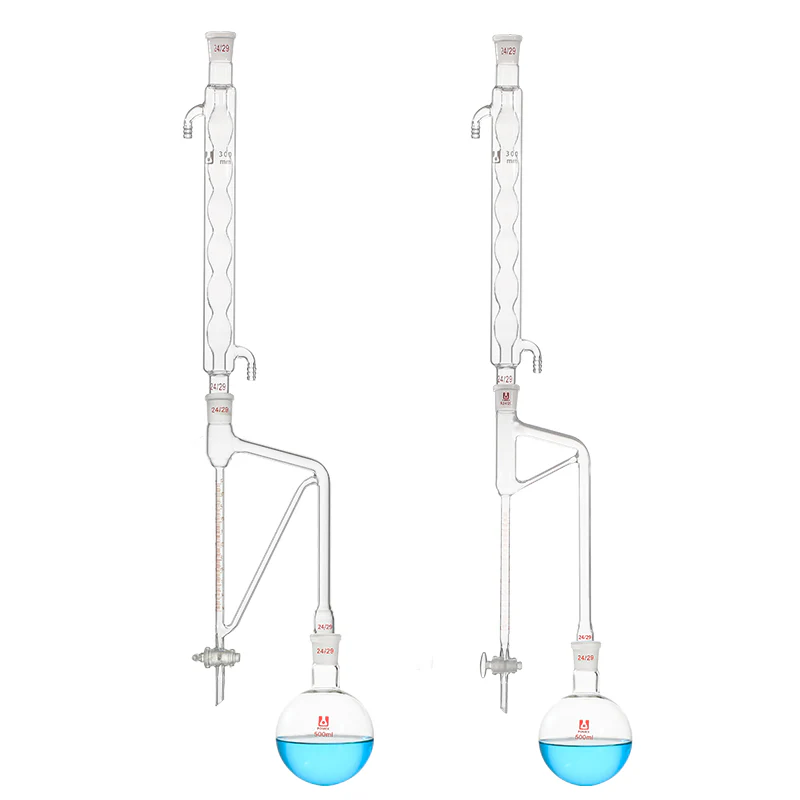
Designed for hydro-distillation of essential oils as per IS and IP standards. Consists of a round-bottom flask, condenser, and graduated oil receiver (5 mL–10 mL) with 0.1 mL markings. Manufactured from 3.3 borosilicate glass, it offers rapid heat resistance and chemical inertness. The Clevenger design allows simultaneous collection and recycling of condensed water, ensuring accurate yield measurements for botanicals, perfumes, and pharma-grade oil extraction.
Types : Standard Clevenger, modified with safety features.
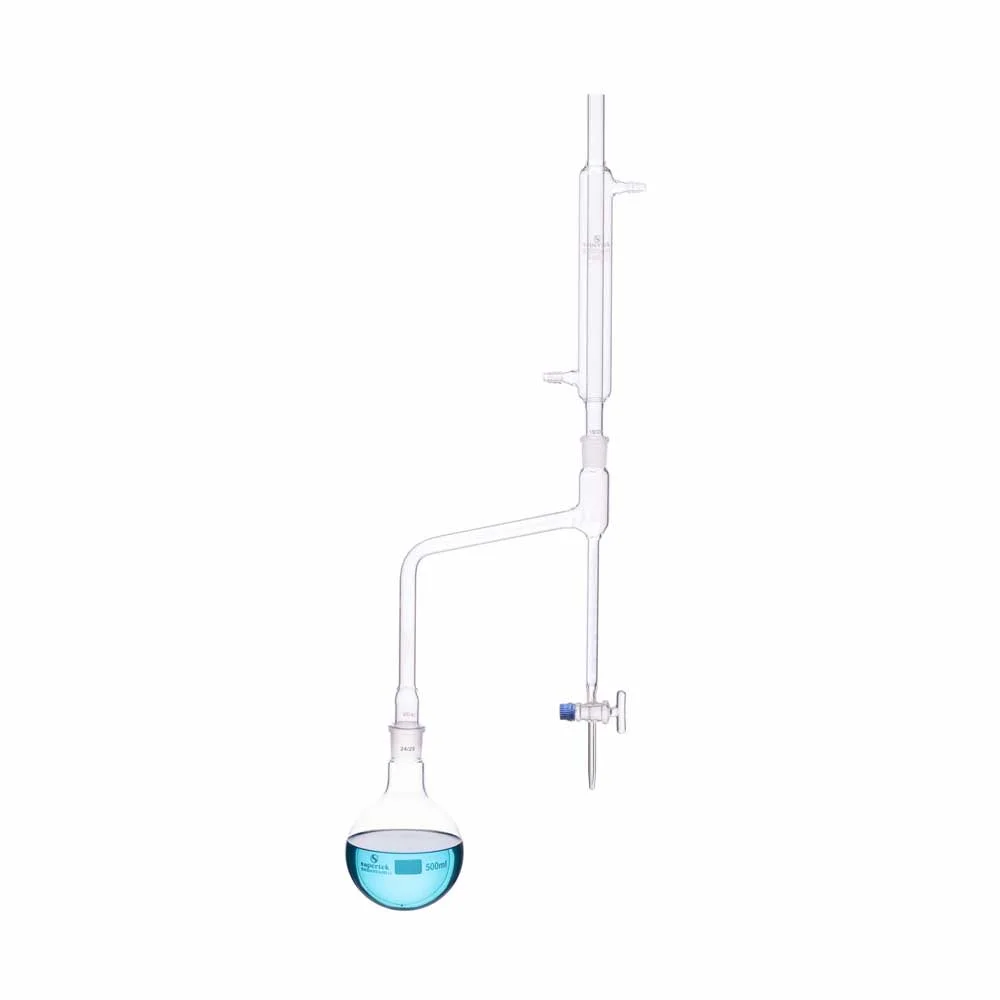
Used to determine moisture in solvents via azeotropic distillation. Includes a 1000 mL flask, 200 mm Liebig condenser, and 5–10 mL graduated receiver with 0.1 mL increments. All-glass construction from low-expansion borosilicate ensures thermal stability and chemical compatibility. Ideal for water content analysis in petroleum, food, or pharma industries, and conforms to IP and ASTM moisture test protocols.
Types : Manual and digital-volume Dean Stark assemblies.
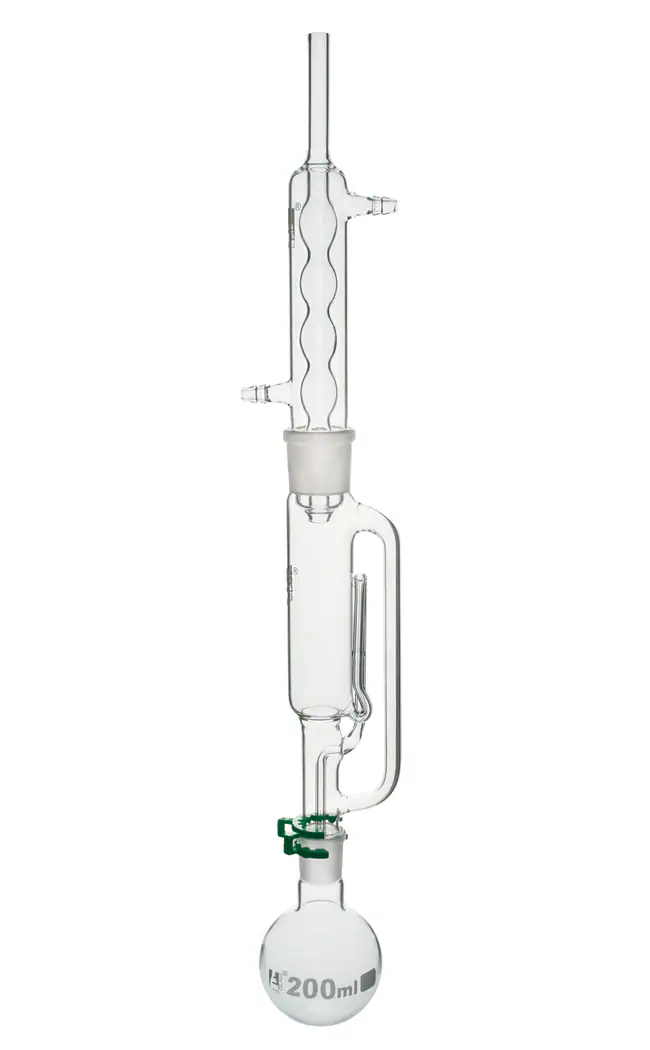
Automated solvent extraction device engineered for efficient fat, wax, or lipid analysis. Complete package features digitally controlled 6-zone heaters, actual time display, and auto cutoff safety. Available in capacities: 100 mL or 200 mL extractors and 250 mL or 500 mL receiving flasks. Low-expansion glass ensures inertness and temperature resistance. Ideal for food analysis, environmental, and pharmaceutical labs needing precise, repeatable extractions.
Types : Standard Soxhlet, programmable digital, and multi-position units.
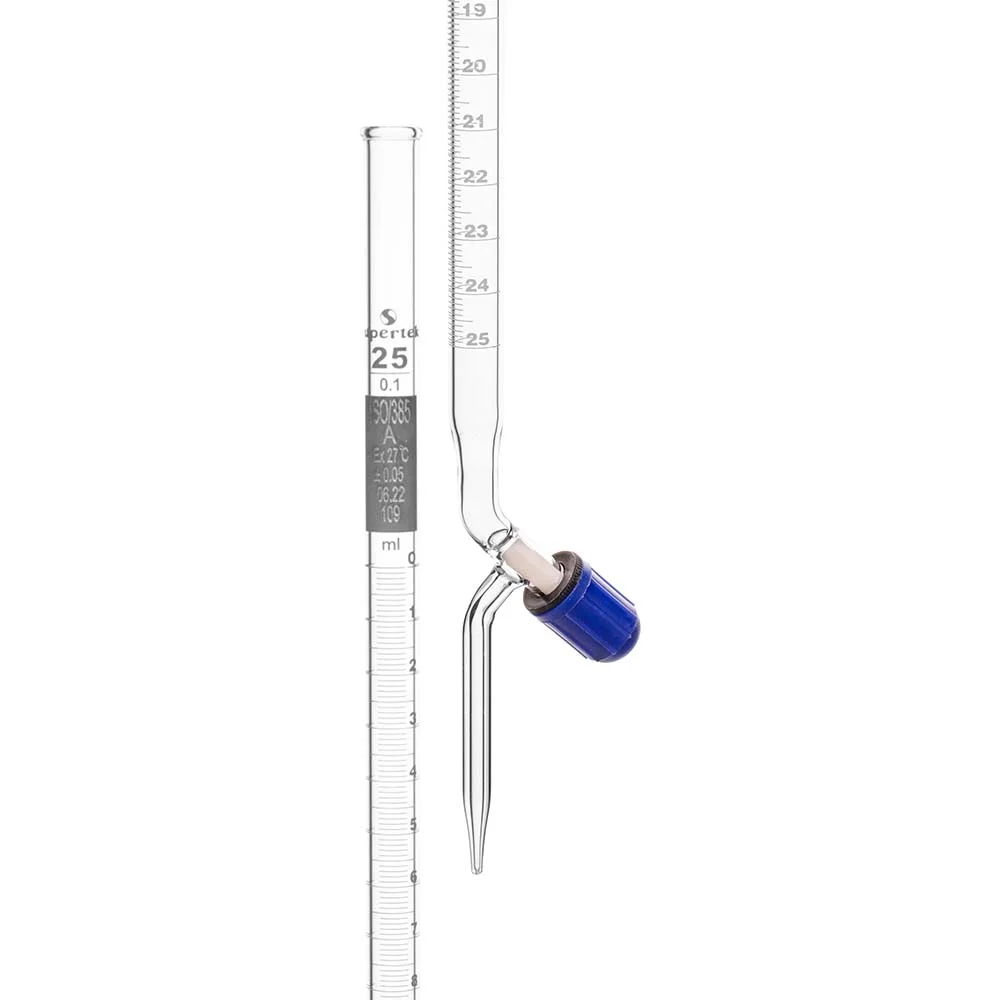
Precision titrimetric glassware made from heavy-walled borosilicate tubing, calibrated at 27 °C. Available in 10, 25, 50, and 100 mL volumes with 0.1 mL graduation intervals. Features Boroflo PTFE stopcock ensuring smooth, lubrication-free flow and high drop control. Meets ISO/ASTM Class B standards and supplied with traceable calibration certificates. Essential for accurate acid-base titrations in educational, industrial, and QA/QC laboratories.
Types : Manual, digital, amber (light-sensitive), and automated burettes.
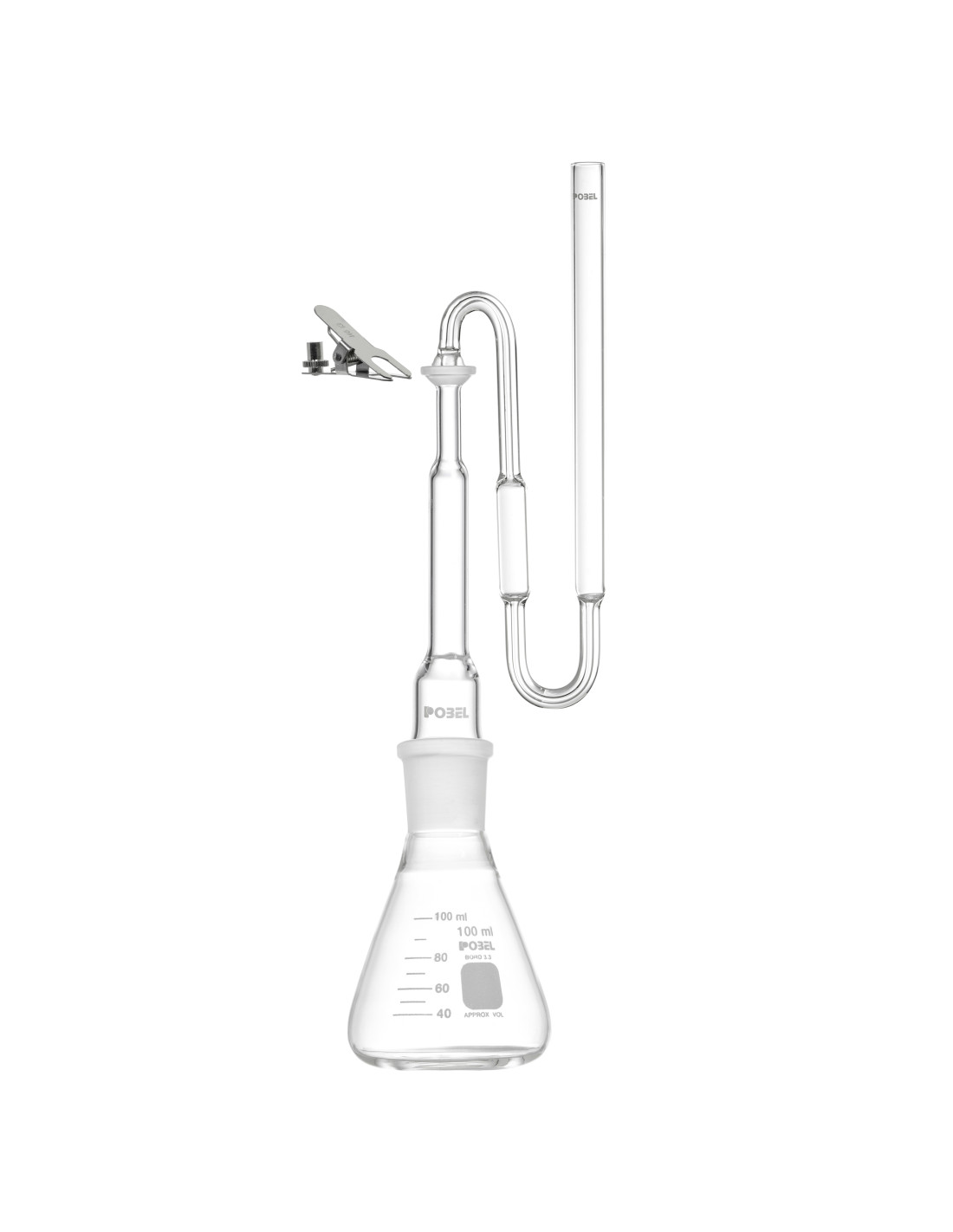
Designed for the arsenic limit test per USP/BP/IS, this apparatus (e.g., Borosil model 5200/5202) is made of 3.3 borosilicate glass and includes a reaction flask, gas delivery tube, and condensate trap/receiver. Typical dimensions are ~475 × 80 × 210 mm, weighing approximately 50 g. It ensures chemical resistance, accurate volume metering, and thermal stability.
Types : USP, BP, IP, EP, JP, Gutzeit versions with standard or amber glass.
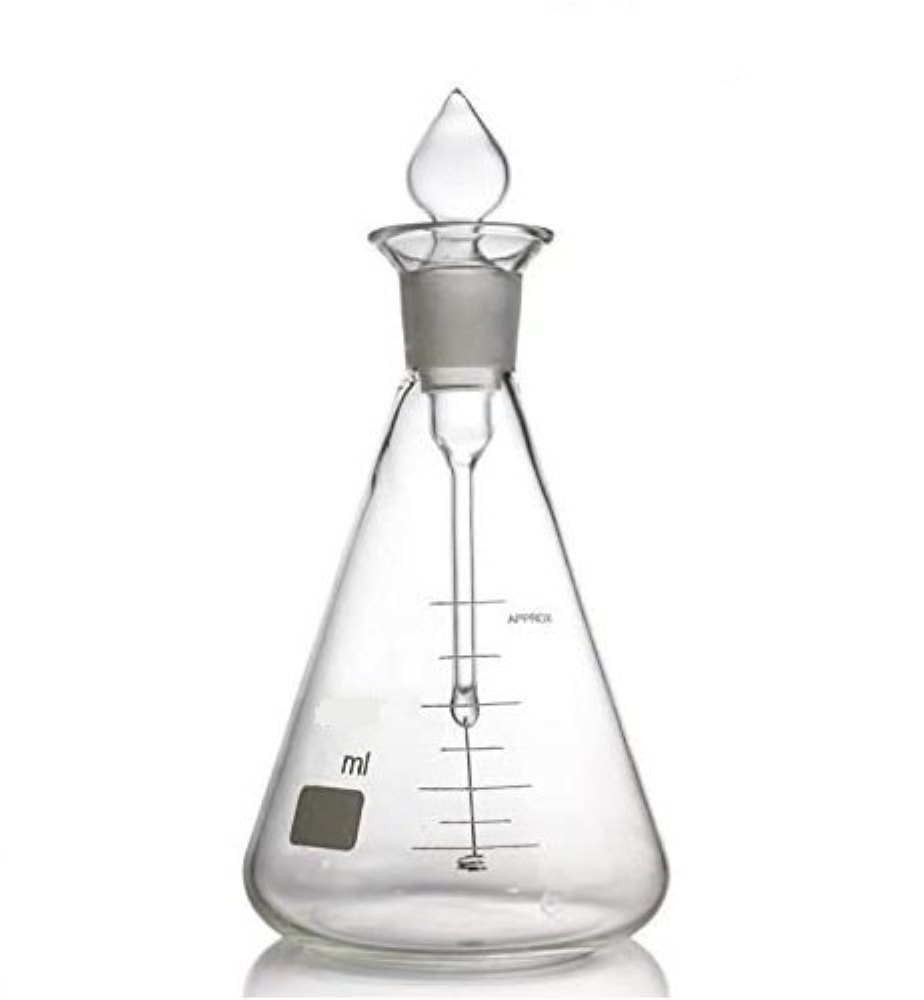
This oxygen combustion unit complies with USP guidance for nitrogen and sulfur determination. It comprises robust borosilicate glass bomb chamber, inlet/outlet ports, and glass manometer connections. Designed to withstand high pressure (~100 psi) and temperatures up to 500°C, it's suitable for sample digestion using oxygen. The seamless joints ensure leak-tight performance for accurate elemental analysis.
Types : Manual, semi-automated, and fully automated oxygen bomb systems.
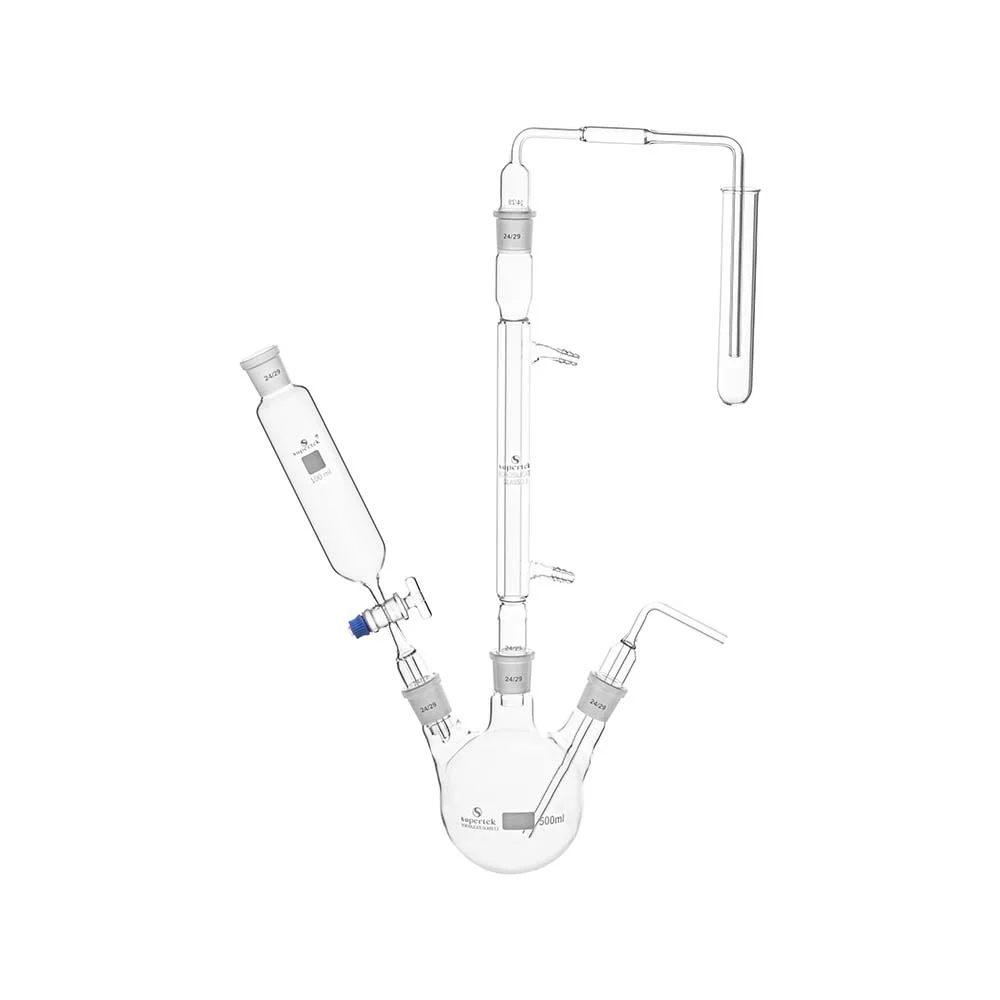
These specialized USP/compliant assemblies feature borosilicate reaction vessels, gas collection arms, graduated condensate tubes (2–10 mL), and associated adapters. Built for methoxy determination, SO₂ analysis, and sodium alginate quantitation, they offer high clarity and thermal resistance.
Types : Methoxy value apparatus, SO₂ determination setups, sodium alginate test rigs.
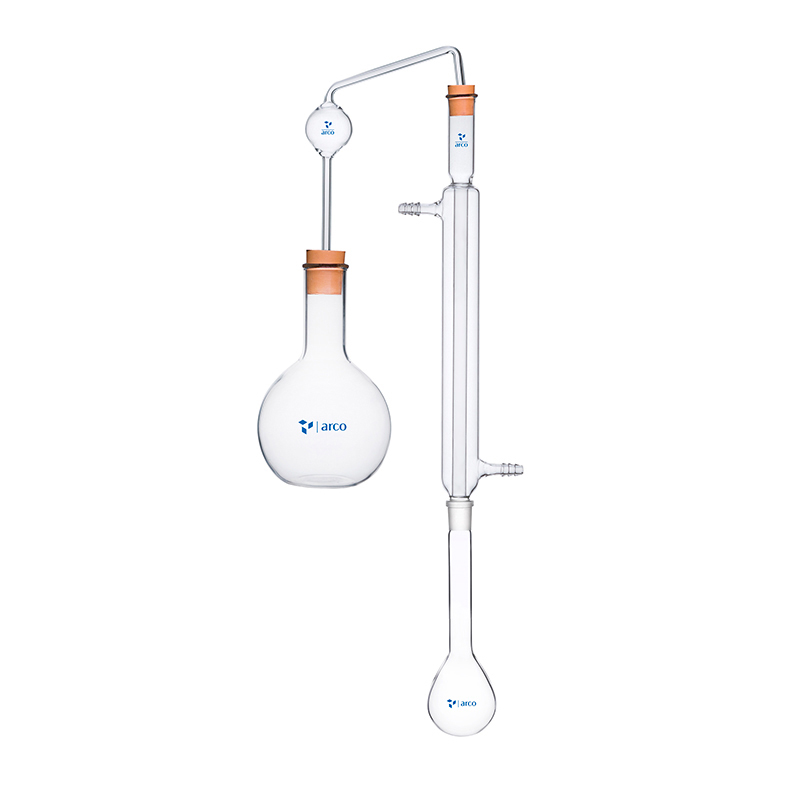
Used for assessing butterfat content in dairy samples as per IS 548 Part I, this borosilicate glass apparatus includes a 300 mL round bottom flask and graduated receiver (100 mL) marked at 20 °C. The design ensures stable distillation and precise volume readings in quality control labs.
Types : Manual and thermostatically jacketed RM assemblies.
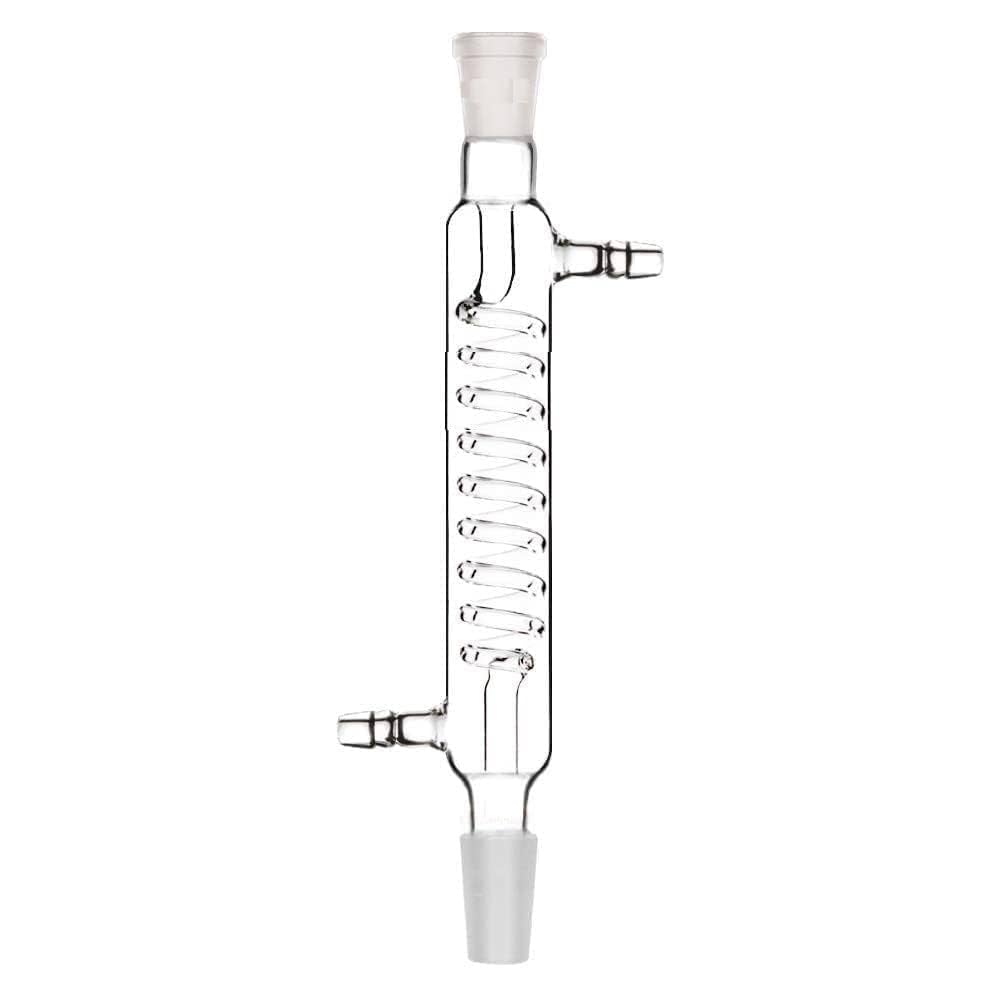
A Graham condenser is designed with a coiled inner tube within a coolant-jacketed outer tube, increasing condensation efficiency. Made of heat-resistant borosilicate glass, it typically comes in lengths of 300–500 mm with ground-glass joints (24/40, 19/26).
Types : Standard, vacuum-rated, adapter-ready Graham condensers.
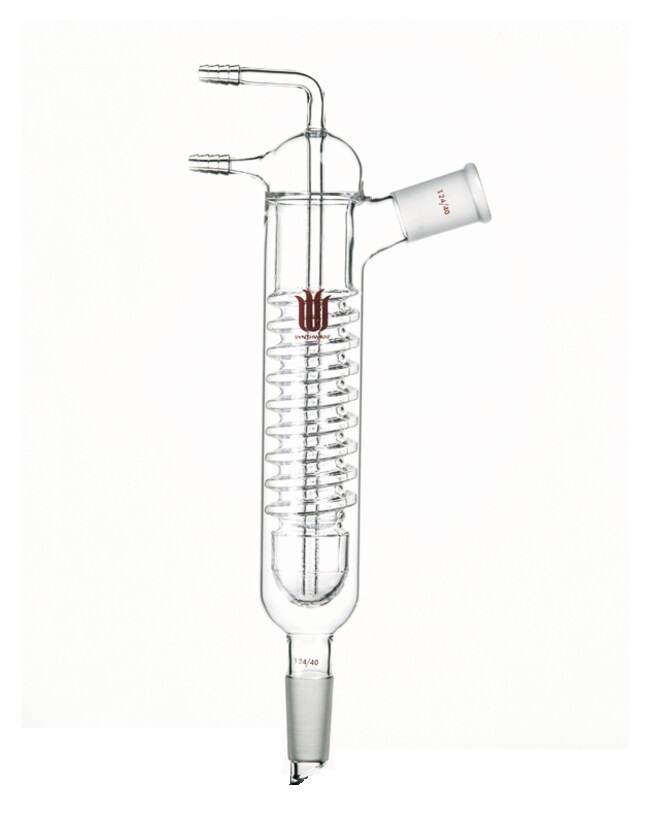
Also known as spiral or coil condensers, Friedrichs condensers use a tubular spiral within the jacket to maximize cooling surface and condense vapors effectively. Lengths range from 200–350 mm, with joints like 24/40 or 19/26. Suitable for distillation and reflux.
Types : Removable hose connection models, safety-enhanced variants.
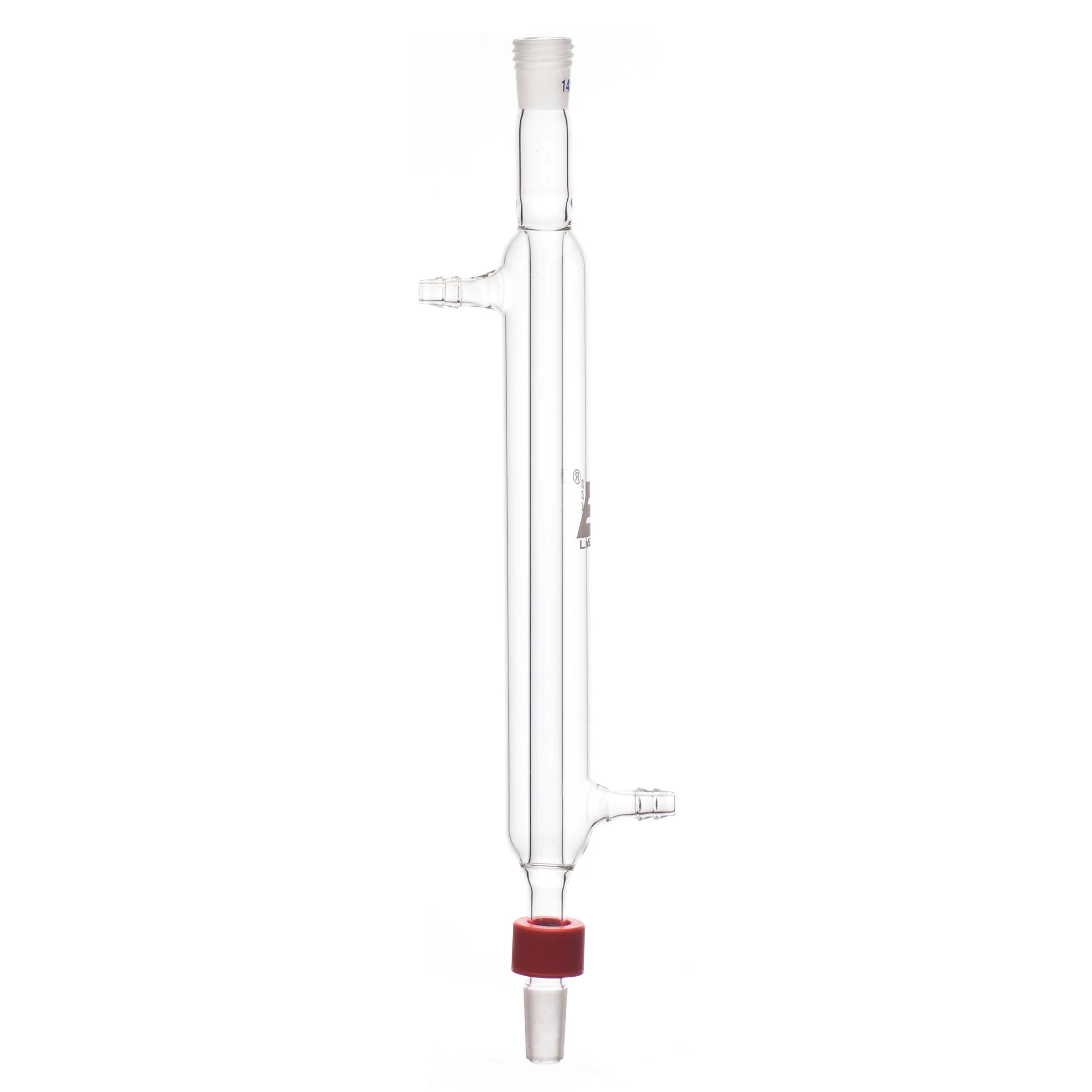
A straight-tube condenser featuring a coolant jacket for efficient vapor condensation. Common lengths include 200 mm to 300 mm with 19/26 or 24/29 ground glass joints. Fabricated from robust borosilicate, it resists thermal shock and chemical degradation. Used in distillation, reflux reactions, and vapour-phase extractions. Simple, reliable and widely compatible with various glassware, making it essential for synthetic, analytical, and process-lab operations.
Types : Friedrichs, Graham, Allihn (bubble), and Dimroth variations.
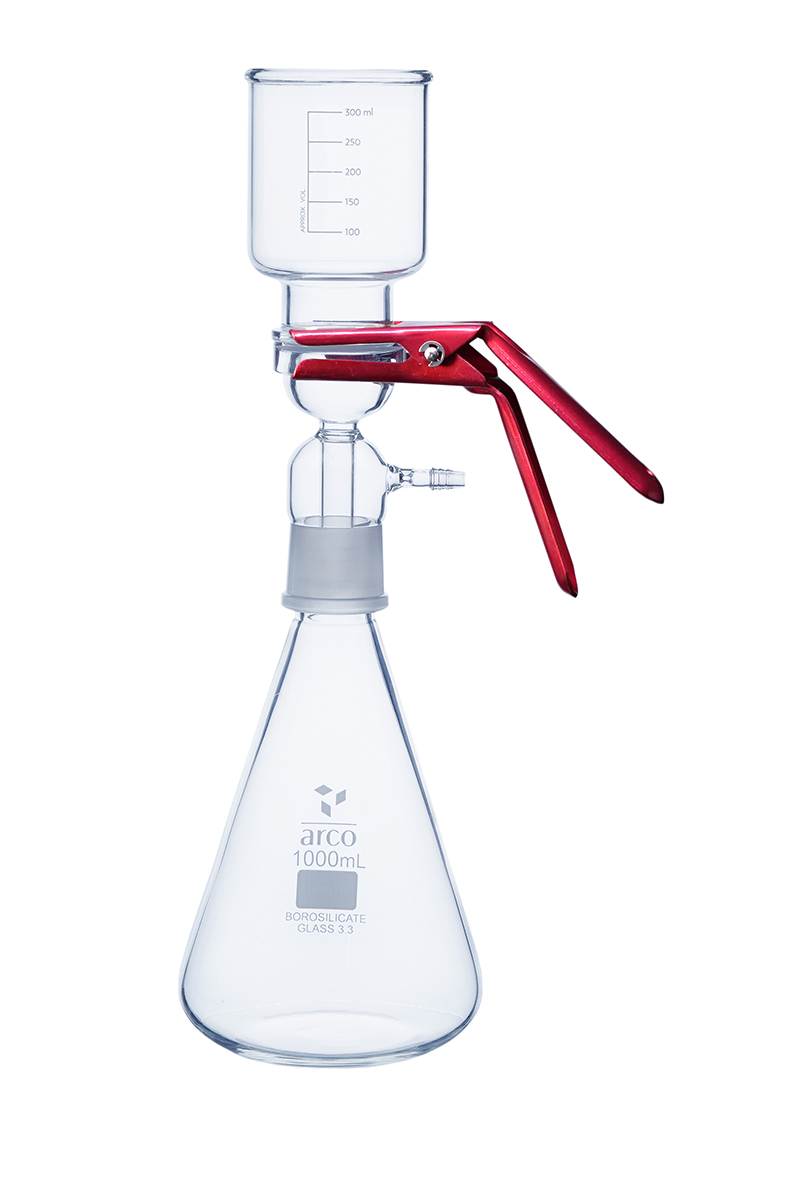
This assembly consists of a Buchner or Hirsch funnel with fritted glass or sintered disc, vacuum filtration flask, and a side-arm adapter. All components are constructed from borosilicate glass for chemical and thermal stability. Frit porosity ranges from coarse to fine (porosities G2–G4), offering flexibility in filtration applications.
Types : Buchner vacuum assemblies, Hirsch funnel kits, multi-porosity frit sets, and pressure filtration variants.
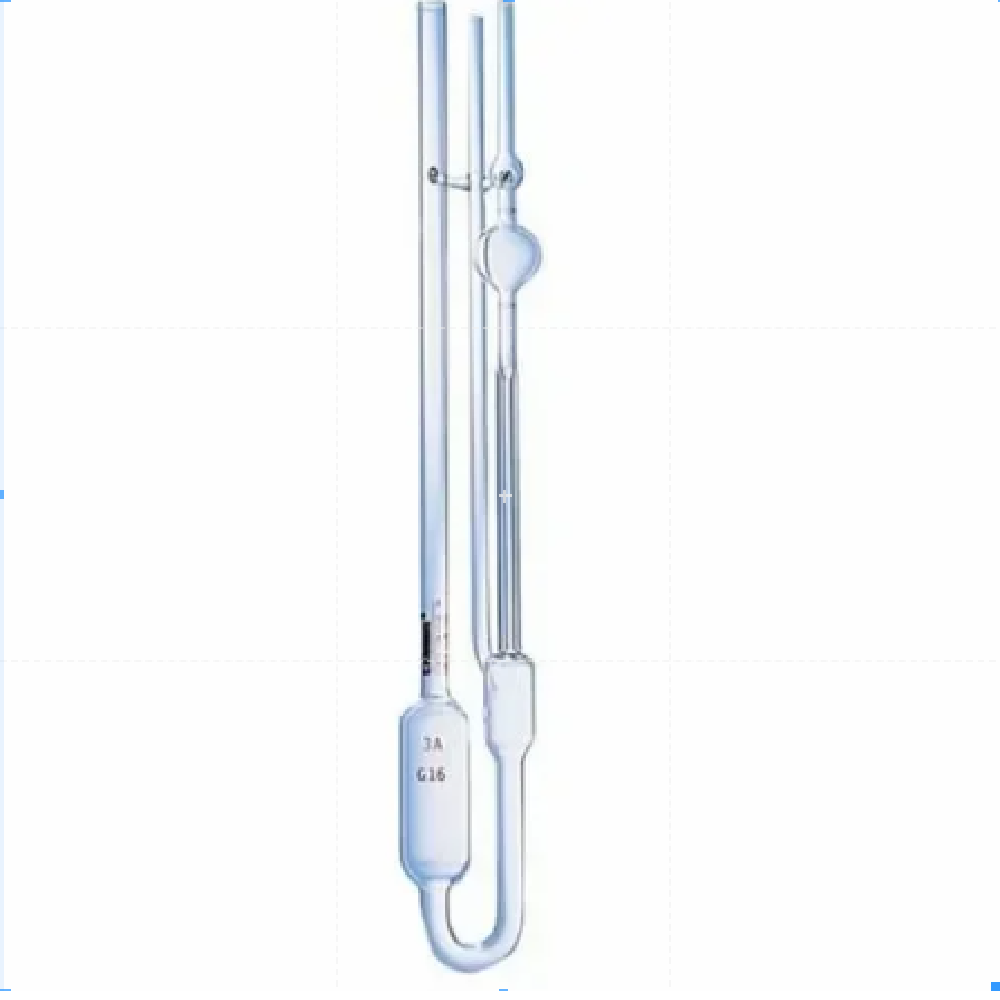
The Ubbelohde viscometer is a precision glass capillary instrument used to measure kinematic viscosity of transparent Newtonian fluids. Unlike other viscometers, it maintains constant pressure during flow, ensuring accuracy independent of liquid volume. Constructed from 3.3 borosilicate glass, it includes an overflow reservoir, timing bulbs, and a suspended level capillary. Typical sizes follow ISO 3105 or ASTM D446 standards, with constants from 0.003 to 0.1 mm²/s². Ideal for polymer, petrochemical, and lubricant industries.
Types : Standard, reverse-flow, dilution (micro-Ubbelohde), and ASTM D445-compliant models.